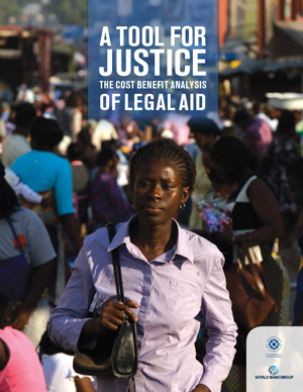A joint report from the International Bar Association (IBA) and the World Bank says improving legal aid services is as important for economic growth as providing functioning hospitals, schools and roads. The report, A Tool for Justice: A Cost Benefit Analysis of Legal Aid, is the outcome of discussions first started in 2017 about how increased access to justice can be a ‘win-win’ for businesses, the economy and society at large. More than 50 cost and benefit studies of legal aid programmes from around the world were surveyed for the report, with evidence compiled from civil and common law.

“The evidence is clear - improving access to justice benefits society and contributes to economic growth. I urge the international community to read this report and share the findings. In a world of injustice, it is vital that we work together to redress the balance,” says IBA President Horacio Bernardes Neto.
A Tool for Justice reveals that around 5.1 billion people - two-thirds of the world’s population - lack meaningful access to justice. Lack of access to justice traps people in vicious cycles of poverty, inequality and marginalisation. The burden of this justice gap falls disproportionally on the most vulnerable, including women, children, minorities and people with disabilities. The report says legal aid is a recognised way of providing access to justice, but the funding for it is often seen as a drain on state finances.
“Unaddressed legal needs affect individuals, their families, the justice system, the economy and society as a whole. As a profession we must continue to champion legal aid programmes and ensure that everyone has the opportunity to access justice,” says Lucy Scott-Moncrieff, who led for the IBA on the project.
